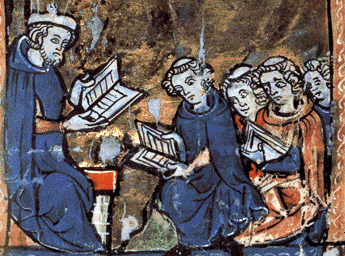Hrólfs saga kraka — chs 34-35 §35.5
hann ‘he’
nom. m. sg.
hann (pron.; °gen. hans, dat. honum; f. hon, gen. hennar, acc. hana): he, she, it, they, them...
Closehann ‘him’
acc. m. sg.
hann (pron.; °gen. hans, dat. honum; f. hon, gen. hennar, acc. hana): he, she, it, they, them...
Closedýrit ‘the beast’
nom. sg. definite form;
1. dýr (noun n.; °-s (spec.: dyʀiɴs KonrA 66⁴, etc., cf. Seip 1955 188-189); -): animal
Closeákaft ‘violently’
nom. n. sg. adverbial;
ákafr (adj.; °compar. -ari, superl. -astr): vehement, fiery
Closeskaltu ‘you must’
2nd pers. pres. sg. enclictic pronoun;
skulu (verb): shall, should, must
skaltu: skaltu = skalt þú
Closedýrsins ‘the beast’s’
gen. sg. definite form;
1. dýr (noun n.; °-s (spec.: dyʀiɴs KonrA 66⁴, etc., cf. Seip 1955 188-189); -): animal
CloseHann ‘He’
nom. m. sg.
hann (pron.; °gen. hans, dat. honum; f. hon, gen. hennar, acc. hana): he, she, it, they, them...
Closehann ‘he’
nom. m. sg.
hann (pron.; °gen. hans, dat. honum; f. hon, gen. hennar, acc. hana): he, she, it, they, them...
Closeannat ‘[to do] otherwise’
nom. n. sg.
1. annarr (pron.; °f. ǫnnur, n. annat; pl. aðrir): (an)other, second
Closehann ‘him’
unknown. m. sg.
hann (pron.; °gen. hans, dat. honum; f. hon, gen. hennar, acc. hana): he, she, it, they, them...
CloseHann ‘He’
nom. m. sg.
hann (pron.; °gen. hans, dat. honum; f. hon, gen. hennar, acc. hana): he, she, it, they, them...
Closehann ‘him’
m. sg.
hann (pron.; °gen. hans, dat. honum; f. hon, gen. hennar, acc. hana): he, she, it, they, them...
Closedýrshjartanu ‘the beast’s heart’
dat. sg. definite form;
dýrshjarta (noun n.; °dat. ·hjarta): animal heart
Closehans ‘him’
gen. m. sg.
hann (pron.; °gen. hans, dat. honum; f. hon, gen. hennar, acc. hana): he, she, it, they, them...
Closeáttusk ‘fight’
3rd pers. pret. pl. middle
2. eiga (verb; °á/eigr (præs. pl. 3. pers. eigu/eiga); átti, áttu; átt): own, have
áttusk: Here the verb eiga in the middle voice means ‘exchanged, shared, fought’.
Closeþeir ‘they’
nom. m. pl.
hann (pron.; °gen. hans, dat. honum; f. hon, gen. hennar, acc. hana): he, she, it, they, them...
Close‘Nú skaltu drekka blóð dýrsins.’
Hann er lengi tregr, en þó þorir hann víst eigi annat. Bǫðvarr lætr hann drekka tvá sopa stóra. Hann lét hann ok eta nǫkkut af dýrshjartanu. Eptir þetta tók Bǫðvarr til hans, ok áttusk þeir við lengi.
Teaching text: text section
Here you can see a piece of text. Clicking on words in the text will show you the dictionary headword, grammatical information and notes on how the word is used.
You should pay careful attention to the explanation of each word. You can test your knowledge using the translation and other exercises.
In some cases there may be audio of a modern Icelandic rendition of the text on this page.
